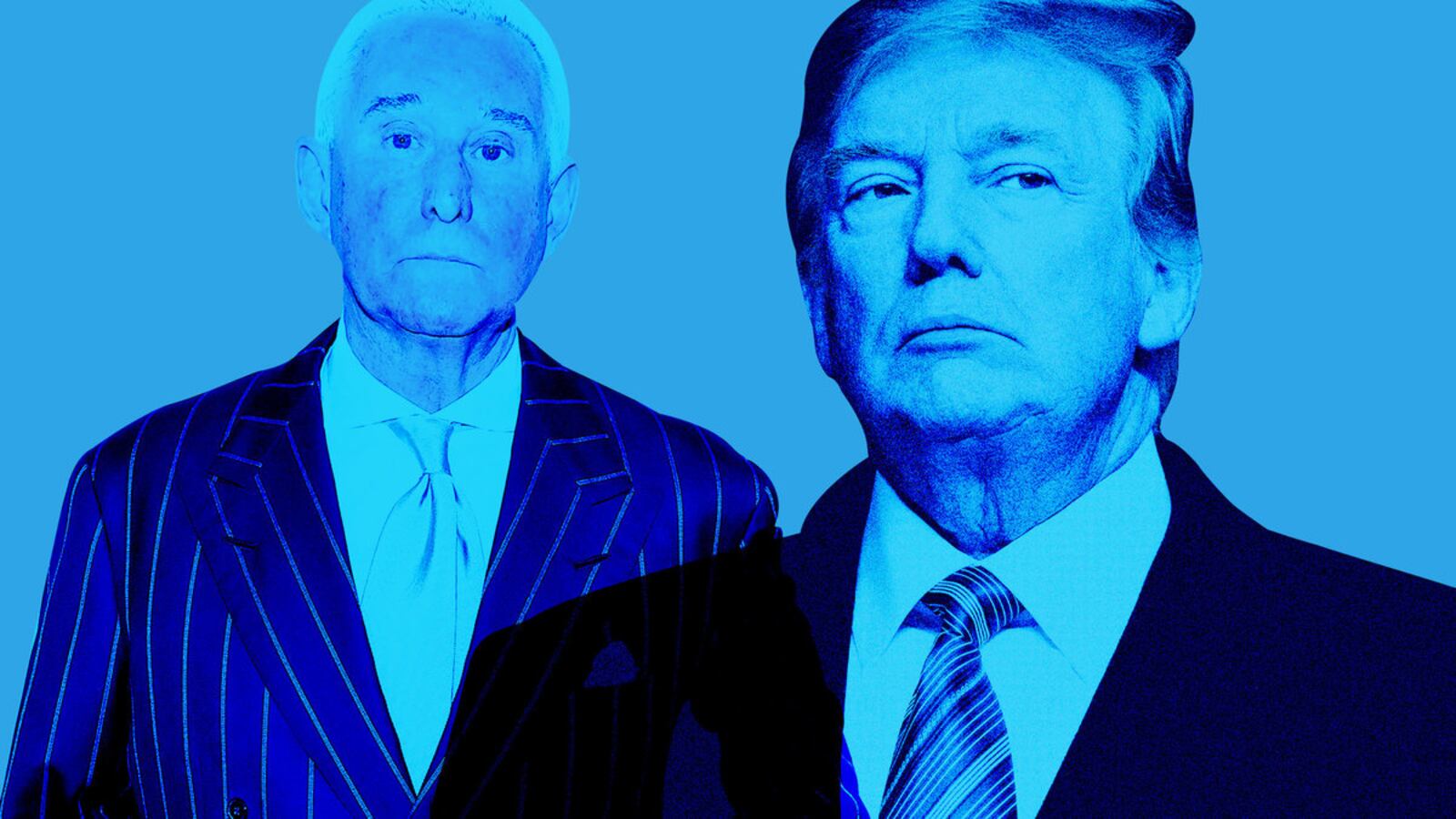If you were looking for “pizzazz,” you came to the right place.
A tweet Trump sent in real-time bashing former U.S. Ambassador to Ukraine Marie Yovanovitch in the midst of her testimony at the impeachment hearing Friday seemed to underscore the charges against him, and perhaps even add to their count.
Hours later, and just a few miles away, a jury found longtime Trump adviser Roger Stone guilty of seven charges, including witness-tampering and lying to Congress. Trump promptly tweeted about that, too, suggesting a pardon might be coming.
Both developments seemed to underscore the charge that Trump and his associates get away with corruption by virtue of instilling fear and intimidation.
That was true of Roger Stone, who threatened to kill the therapy dog of a man who testified against him, and who told the same witness to“do a ‘Frank Pentangeli,’” a reference to a character in The Godfather: Part II who delivers false congressional testimony. And it was true of Donald Trump, who implicitly threatened funding for Ukraine, while suggesting that President Volodymyr Zelensky do him a “favor.”
As if to prove the point, the intimidation continued into the congressional hearing room.
“That was a turning point in this hearing so far,” tweeted Fox News anchor and Special Report host Bret Baier. “She was already a sympathetic witness & the President’s tweet ripping her allowed Schiff to point it out real time characterizing it as witness tampering or intimidation—adding an article of impeachment real-time.”
Ironically, it came on the heels of Yovanovitch testifying that, while serving as ambassador, the State Department considered defending her against smears, but pulled back out of fears that Trump would contradict them by sending out a tweet criticizing her.
Aside from attempting to intimidate Yovanovitch, this sort of attack also serves as a warning to other witnesses or whistleblowers, warning them of the consequences that await them if they testify against Trump.
It wasn’t the first time Yovanovitch has been made to feel this way. During the July 25 call with Zelensky, Trump said of Yovanovitch: “She’s going to go through some things.” It was the kind of cryptic comment a mobster might utter. And that’s how it was interpreted. “It didn’t sound good,” she said during her testimony Friday. “It sounded like—a threat."
This is a pattern of abuse. As Yovanovitch’s testimony made clear, time and again, the president and Rudy Giuliani sided with corrupt Ukrainians over their own foreign-service agents. Giuliani’s smear campaign ultimately cost her her job.
This raises the obvious question: Why would Trump go after Yovanovitch, publicly? “You can’t fight corruption without pissing off corrupt people,” George Kent said during his testimony Wednesday.
Donald Trump, it turns out, is one of those people.
One of the big problems with Trump’s tweet is that it also serves to underscore the fundamental charge of this impeachment inquiry: whether Trump abused his power in an attempt to intimidate a vulnerable president of Ukraine.
If Republicans were hoping to enforce message discipline, or avoid the appearance of menacing a female public servant, Trump ended those hopes in one fell tweet.
Up until today, though, it seemed that the black hats were able to operate with impunity—that the adults were too decent, too slow, and too weak to hold them accountable.
But Yovanovitch’s testimony, Trump’s tweet, and Stone’s conviction look like a turning point. You can probably add witness intimidation to the number of impeachment counts Trump will be facing.








